784 episodes


A joyous Eastertide and happy reading to you all! Get full access to The Daily Poem Podcast at dailypoempod.substack.com/subscribe https://dailypoempod.substack.com/subscribe?utm_medium=podcast&utm_campaign=CTA_4


Due to the inconsistencies and ambiguities within his work and the scarcity of information about his personal life, Andrew Marvell has been a source of fascination for scholars and readers since his work found recognition in the early decades of the twentieth century. Born on March 31, 1621, Marvell grew up in the Yorkshire town of Hull, England, where his father, Rev. Andrew Marvell, was a lecturer at Holy Trinity Church and master of the Charterhouse. At age twelve Marvell began his studies at Trinity College, Cambridge. Four years later, two of Marvell’s poems, one in Latin and one in Greek, were published in an anthology of Cambridge poets. After receiving his bachelor’s degree in 1639, Marvell stayed on at Trinity, apparently to complete a master’s degree. In 1641, however, his father drowned in the Hull estuary and Marvell abandoned his studies. During the 1640s Marvell traveled extensively on the continent, adding Dutch, French, Spanish, and Italian to his Latin and Greek—missing the English Civil Wars entirely. Marvell spent most of the 1650s working as a tutor, first for Mary Fairfax, daughter of a retired Cromwellian general, then for one of Oliver Cromwell’s wards. Scholars believe that Marvell’s greatest lyrics were written during this time. In 1657, due to John Milton’s efforts on his behalf, Marvell was appointed Milton’s Latin secretary, a post Marvell held until his election to Parliament in 1660. A well-known politician, Marvell held office in Cromwell’s government and represented Hull to Parliament during the Restoration. His very public position—in a time of tremendous political turmoil and upheaval—almost certainly led Marvell away from publication. No faction escaped Marvell’s satirical eye; he criticized and lampooned both the court and Parliament. Indeed, had they been published during his lifetime, many of Marvell's more famous poems—in particular, “Tom May's Death,” an attack on the famous Cromwellian—would have made him rather unpopular with royalists and republicans alike. Marvell used his political status to free Milton, who was jailed during the Restoration, and quite possibly saved the elder poet’s life. In the early years of his tenure, Marvell made two extraordinary diplomatic journeys: to Holland (1662–63) and to Russia, Sweden, and Denmark (1663–65). In 1678, after eighteen years in Parliament, Marvell died rather suddenly of a fever. Gossip from the time suggested that the Jesuits (a target of Marvell’s satire) had poisoned him. After his death, he was remembered as a fierce and loyal patriot. Now considered one of the greatest poets https://bookshop.org/a/98428/9780140424577 of the seventeenth century, Marvell published very little of his scathing political satire and complex lyric verse in his lifetime. Although he published a handful of poems in anthologies, a collection of his work did not appear until 1681, three years after his death, when his nephew compiled and found a publisher for . The circumstances surrounding the publication of the volume aroused some suspicion: a person named “Mary Marvell,” who claimed to be Marvell’s wife, wrote the preface to the book. “Mary Marvell” was, in fact, Mary Palmer—Marvell’s housekeeper—who posed as Marvell’s wife, apparently, in order to keep Marvell’s small estate from the creditors of his business partners. Her ruse, of course, merely contributes to the mystery that surrounds the life of this great poet. Andrew Marvell died on August 16, 1678. - Get full access to The Daily Poem Podcast at dailypoempod.substack.com/subscribe https://dailypoempod.substack.com/subscribe?utm_medium=podcast&utm_campaign=CTA_4


English peer and poet George Gordon Byron was one of the bad boys of the Romantic movement and, by some accounts, the first ‘celebrity.’ Like countless celebrities who would come after, he was embroiled in a number of romantic scandals and never accused of being overly pious (to put it Britishly). Nevertheless, he was moved by a number of stories from the Hebrew scriptures–a response that inspired him to pen an entire collection of poetry and one of the best-known similes in English poetry. Get full access to The Daily Poem Podcast at dailypoempod.substack.com/subscribe https://dailypoempod.substack.com/subscribe?utm_medium=podcast&utm_campaign=CTA_4
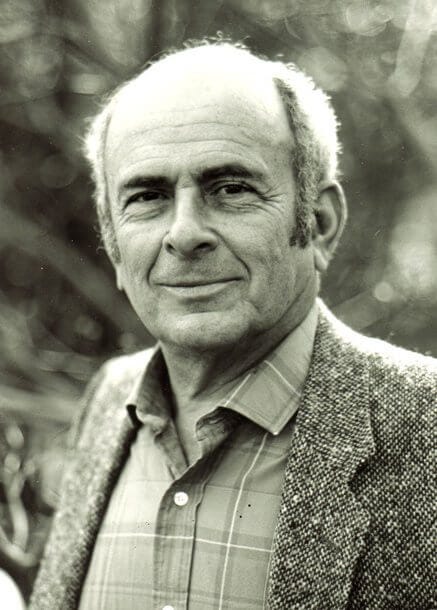

Poet, editor, translator, and critic Louis Simpson was born in Jamaica to Scottish and Russian parents. He moved to the United States when he was 17 to study at Columbia University. After his time in the army, and a brief period in France, Simpson worked as an editor in New York City before completing his PhD at Columbia. He taught at colleges such as Columbia University, the University of California, Berkeley, and the State University of New York at Stony Brook. A contemporary of confessional poets like Robert Lowell, John Berryman, and Sylvia Plath, Simpson’s early work followed a familiar arc. In the , critic David Orr noted its highlights: “Simpson has followed a path lined with signposts sunk so deep in our nation's poetic terra firma that they've practically become part of the landscape. Those signposts declare that a poet born in or around the 1920s should (1) begin his career writing witty, ironic formal poems bearing the stamp of Eliot and Auden; then (2) abandon that formalism for a more 'natural' free verse approach, while (3) dabbling in surrealism; until (4) finally settling on social, conversational poems in the manner of a man speaking to men.” While Simpson’s early books like (1949) and (1959) show the influence of Auden, they also speak to his horrific experiences in World War II, where he served in the 101st Airborne Division and saw active duty in France, Belgium, and Germany. Simpson’s intense formal control, at odds with the visceral details of soldiering, also earned him comparisons to Wilfred Owen. (1963) won the Pulitzer Prize and marked a shift in Simpson’s poetry as well. In this and later volumes, like (1976) and (1983), Simpson’s simple diction and formally controlled verses reveal hidden layers of meaning. Simpson’s lifelong expatriate status influenced his poetry, and he often uses the lives of ordinary Americans in order to critically investigate the myths the country tells itself. Though he occasionally revisits the West Indies of his childhood, he always keeps one foot in his adopted country. The outsider’s perspective allows him to confront “the terror and beauty of life with a wry sense of humor and a mysterious sense of fate,” wrote Edward Hirsch of the Elsewhere Hirsch described Simpson’s Pulitzer Prize-winning collection, (1963), as “a sustained meditation on the American character,” noting, “The moral genius of this book is that it traverses the open road of American mythology and brings us back to ourselves; it sees us not as we wish to be but as we are.” (1988) and (1995) focus on the lives of everyday citizens, using simple diction and narratives to expose the bewildering reality of the American dream. Poet Mark Jarman hailed Simpson as “a poet of the American character and vernacular.” A noted scholar and critic, Simpson published a number of literary studies, including (1994), (1986), and (1975). Simpson also penned a novel, (1962), and the autobiographies (1994) and (1972). Simpson’s later work included (2003), a collection that spans his 60-year career, and (2009). In addition to the Pulitzer Prize, Simpson received numerous awards and accolades, including the Prix de Rome, the Columbia Medal for Excellence, and fellowships from the Guggenheim Foundation. He was a finalist for the prestigious Griffin International Poetry Award, and his translation of (1997) won the Harold Morton Landon Translation Award. Simposon died in Setauket, New York in 2012. - Get full access to The Daily Poem Podcast at dailypoempod.substack.com/subscribe https://dailypoempod.substack.com/subscribe?utm_medium=podcast&utm_campaign=CTA_4
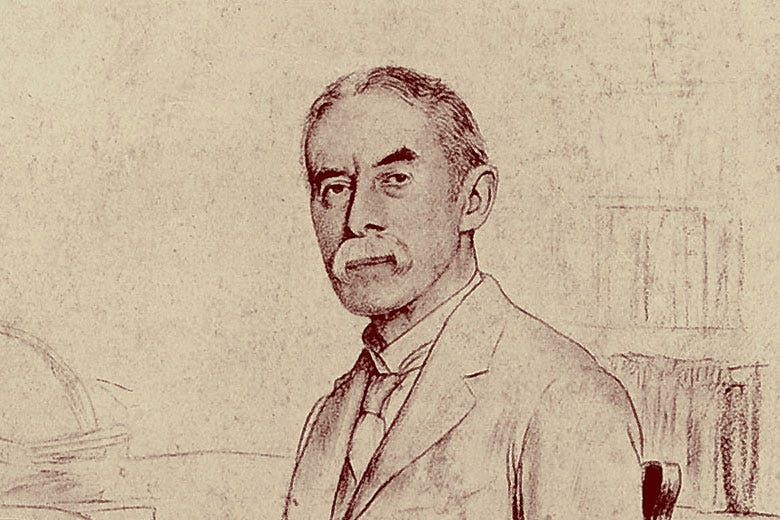

Alfred Edward Housman was born in Fockbury, Worcestershire, England on March 26, 1859 and was the eldest of seven children. A year after his birth, Housman’s family moved to nearby Bromsgrove, where the poet grew up and had his early education. In 1877, he attended St. John’s College, Oxford and received first class honours in classical moderations. Housman became distracted, however, when he fell in love with his roommate, Moses Jackson. He unexpectedly failed his final exams, but managed to pass the final year and later took a position as clerk in the Patent Office in London for ten years. During this time, Housman studied Greek and Roman classics intensively, and, in 1892, he was appointed professor of Latin at University College, London. In 1911, he became professor of Latin at Trinity College, Cambridge, a post he held until his death. As a classicist, Housman gained renown for his editions of the Roman poets Juvenal, Lucan, and Manilius, as well as his meticulous and intelligent commentaries, and his disdain for the unscholarly. Housman only published two volumes of poetry during his life: (1896) and (1922). The majority of the poems in , his cycle of sixty-three poems, were written after the death of Adalbert Jackson, Housman’s friend and companion, in 1892. These poems center around themes of pastoral beauty, unrequited love, fleeting youth, grief, death, and the patriotism of the common soldier. After the manuscript had been turned down by several publishers, Housman decided to publish it at his own expense, much to the surprise of his colleagues and students. While was slow to gain in popularity, the advent of war, first in the Boer War and then in World War I, gave the book widespread appeal due to its nostalgic depiction of brave English soldiers. Several composers created musical settings for Housman’s work, deepening his popularity. Housman continued to focus on his teaching, but in the early 1920s, when his old friend Moses Jackson was dying, Housman chose to assemble his best unpublished poems so that Jackson might read them. These later poems, most of them written before 1910, exhibit a range of subject and form much greater than the talents displayed in . When was published in 1922, it was an immediate success. A third volume, , was released posthumously in 1936 by his brother, Laurence, as was an edition of Housman’s (1939). Despite receiving acclaim as a scholar and a poet during his lifetime, Housman lived as a recluse, rejecting honors and avoiding the public eye. He died on April 30, 1936 in Cambridge. - Get full access to The Daily Poem Podcast at dailypoempod.substack.com/subscribe https://dailypoempod.substack.com/subscribe?utm_medium=podcast&utm_campaign=CTA_4
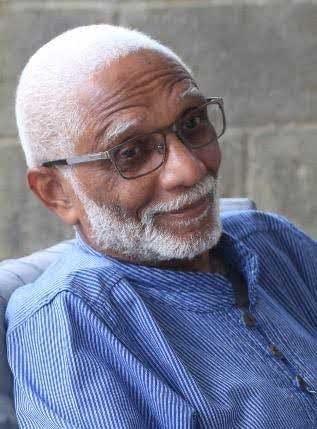

John Robert Lee was born, and lives in St Lucia. He is the author of three collections of poetry, , (2008), 1975-2015 https://bookshop.org/a/98428/9781845233518, (2017), and , (2020). His poems are included in a number of international anthologies and periodicals including , , , , and . He has also published short stories in anthologies such as , and . He edited a St. Lucian anthology of poetry and art spanning fifty years, and with his younger colleague Kendel Hippolyte, he compiled and edited an anthology of reviews covering the history of St. Lucian literature and theatre, (. His reviews and columns appear widely, and he produced and presented radio and television programmes in Saint Lucia for many years. - Get full access to The Daily Poem Podcast at dailypoempod.substack.com/subscribe https://dailypoempod.substack.com/subscribe?utm_medium=podcast&utm_campaign=CTA_4


Today’s poem takes the peripheral and makes it the primary. Happy reading! Get full access to The Daily Poem Podcast at dailypoempod.substack.com/subscribe https://dailypoempod.substack.com/subscribe?utm_medium=podcast&utm_campaign=CTA_4
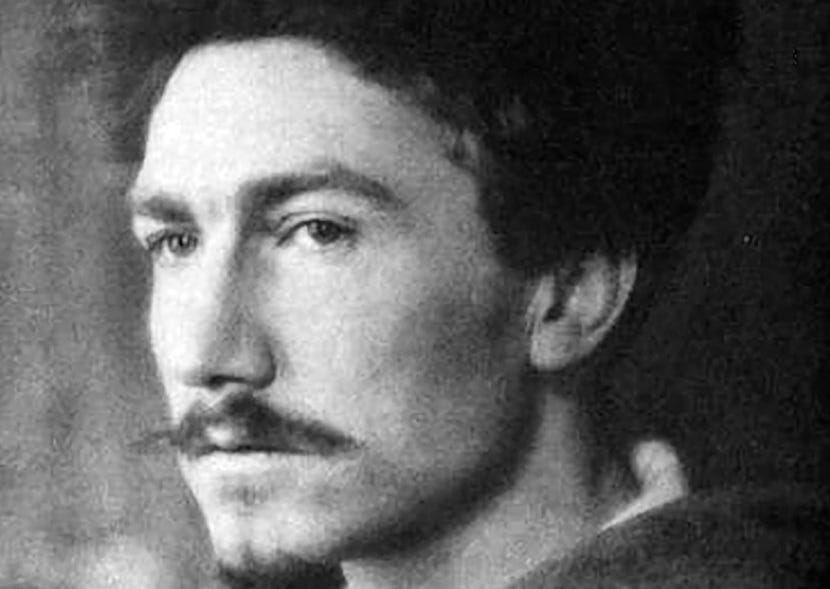

Today’s poem from Ezra Pound (a poet with his own colorful history of exile) is after the style of Li Po https://open.substack.com/pub/dailypoempod/p/li-pos-the-solitude-of-night?r=1xpn3&utm_campaign=post&utm_medium=web, featured last week. Ezra Pound was born in Hailey, Idaho, on October 30, 1885. He completed two years of college at the University of Pennsylvania and earned a degree from Hamilton College in 1905. After teaching at Wabash College for two years, he travelled abroad to Spain, Italy, and London, where, as the literary executor of the scholar Ernest Fenellosa, he became interested in Japanese and Chinese poetry. He married Dorothy Shakespear in 1914 and became London editor of the in 1917. In 1924, Pound moved to Italy. During this period of voluntary exile, Pound became involved in Fascist politics and did not return to the United States until 1945, when he was arrested on charges of treason for broadcasting Fascist propaganda by radio to the United States during World War II. In 1946, he was acquitted, but was declared mentally ill and committed to St. Elizabeths Hospital in Washington, D.C. During his confinement, the jury of the Bollingen Prize for Poetry (which included a number of the most eminent writers of the time), decided to overlook Pound’s political career in the interest of recognizing his poetic achievements, and awarded him the prize for the (New Directions, 1948). After continuous appeals from writers won his release from the hospital in 1958, Pound returned to Italy and settled in Venice, where he died, a semi-recluse, on November 1, 1972. Ezra Pound is generally considered the poet most responsible for defining and promoting a Modernist aesthetic in poetry. In the early teens of the twentieth century, he opened a seminal exchange of work and ideas between British and American writers, and was famous for the generosity with which he advanced the work of such major contemporaries as W. B. Yeats, Robert Frost, William Carlos Williams, Marianne Moore, H. D., James Joyce, Ernest Hemingway, and especially T. S. Eliot. Pound’s own significant contributions to poetry begin with his promulgation of Imagism, a movement in poetry that derived its technique from classical Chinese and Japanese poetry—stressing clarity, precision, and economy of language, and foregoing traditional rhyme and meter in order to, in Pound’s words, “compose in the sequence of the musical phrase, not in the sequence of the metronome.” His later work, for nearly fifty years, focused on the encyclopedic epic poem he entitled . - Get full access to The Daily Poem Podcast at dailypoempod.substack.com/subscribe https://dailypoempod.substack.com/subscribe?utm_medium=podcast&utm_campaign=CTA_4
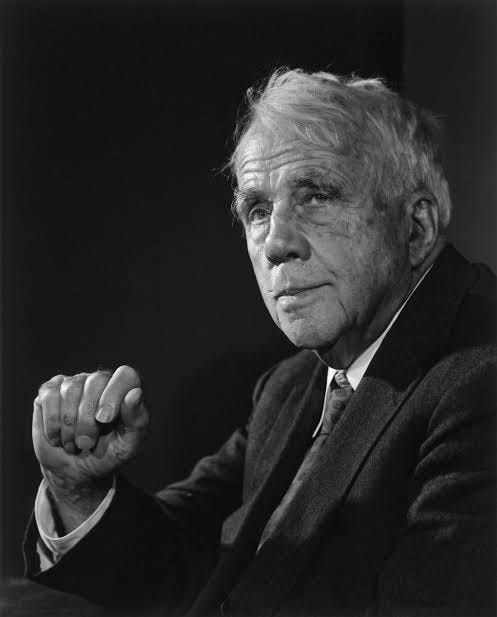

Today’s poem answers the question you never thought to ask: ‘What do Macbeth and a buzz saw have in common?’ Get full access to The Daily Poem Podcast at dailypoempod.substack.com/subscribe https://dailypoempod.substack.com/subscribe?utm_medium=podcast&utm_campaign=CTA_4
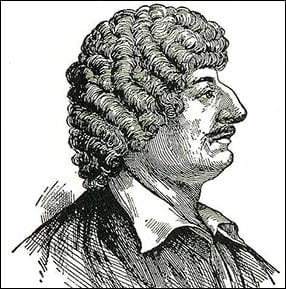

Some poets wind up writing prayers by accident; others do it on purpose. Today’s poems from Robert Herrick https://amzn.to/4aklDmk–“Grace For a Child” and “His Prayer for Absolution”–are of the latter variety. Get full access to The Daily Poem Podcast at dailypoempod.substack.com/subscribe https://dailypoempod.substack.com/subscribe?utm_medium=podcast&utm_campaign=CTA_4
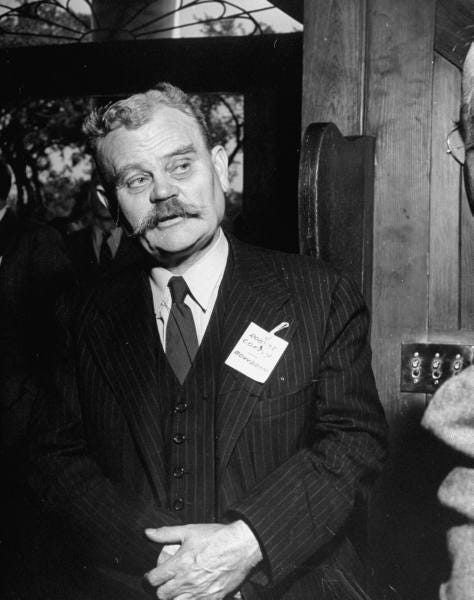

Today’s poems–”The Hill Place” and “Day’s Diamond”–come from Robert P. Tristram Coffin. Coffin (1892-1955) grew up in Brunswick, Maine on a “saltwater farm.” He attended Bowdoin, Princeton, and Oxford University, where he was a Rhodes Scholar before, as well as after, serving two years in World War I. He taught at Wells College in Aurora, New York from 1921-1934 and eventually returned to Bowdoin College, where he was Pierce Professor in English from 1934 until his death in 1955. Throughout his life, Robert Coffin successfully combined the roles of artist and teacher, poet and prose writer. He authored more than forty books, and was awarded many honors, including the 1936 Pulitzer Prize in Poetry for his book, . In 1945, Coffin was elected to the National Institute of Arts and Letters for “work of permanent value in American literature,” and the American Academy of Arts and Sciences granted him membership in 1949. - As promised, Coffin’s essay, Get full access to The Daily Poem Podcast at dailypoempod.substack.com/subscribe https://dailypoempod.substack.com/subscribe?utm_medium=podcast&utm_campaign=CTA_4


Today’s poem marks the ides (or ) or March, a day classically associated with the settling of debts (and maybe old scores, too). One of the foremost editors, literary critics, and anthologists of contemporary American literature, David Lehman is also one of its most accomplished poets. Born in New York City in 1948, Lehman earned a PhD from Columbia University and attended the University of Cambridge as a Kellett Fellow. He is the author of numerous collections of poetry, including (2013), (2009), and (2005). Two of his collections, (2002) and (1998), were culled from Lehman’s five-year-long project of writing a poem a day. Yusef Komunyakaa called “a sped-up meditation on the elemental stuff that we're made of: in this honed matrix of seeing, what's commonplace becomes the focus of extraordinary glimpses....” Lehman has also written collaborative books of poetry, including (2007), with Judith Hall; and (2005), a collection of sestinas he wrote with the poet James Cummins.Lehman inaugurated https://bookshop.org/a/98428/9781982186753series in 1988. As series editor, he has earned high acclaim for his pivotal role in garnering contemporary American poetry a larger audience. In an early interview about the series with Judith Moore, Lehman noted “I want the books to have a lot to commend them beyond the poems themselves. The 75 poems are of course the center of the book, but we want also to have a foreword by me that can provide a context, that gives an idea of what happened in poetry this year, and an essay in which the guest editor propounds his or her criteria.” Lehman’s work as an editor also includes such volumes as (2008), (2006), (2006), (2003), and (1996). He was the director of the University of Michigan Press’s and the series from 1994 to 2006.A prominent literary and cultural critic, Lehman has published works ranging from an indictment of deconstruction, (1991); to a history of the New York School of Poets, (1998); to a meditation on the influence of Jewish songwriters in American music, (2009). Lehman’s numerous honors and awards include fellowships from the National Endowment for the Arts, the Guggenheim Foundation, and the Ingram Merrill Foundation, and awards from the American Academy of Arts and Letters and the Lila Wallace-Reader’s Digest Writer’s Award. On faculty at both the New School and New York University, he lives in New York City. - Get full access to The Daily Poem Podcast at dailypoempod.substack.com/subscribe https://dailypoempod.substack.com/subscribe?utm_medium=podcast&utm_campaign=CTA_4


Today’s poem is the work of an eighth-century poet whose reputation didn’t peak until the twentieth century. Li Po’s “The Solitude of Night” (translated here by Shigeyoshi Obata) resembles Japanese haiku in its atmospheric brevity and is heavy with the kind of common-to-man melancholy the modernists would feel so deeply more than a millennium later. A Chinese poet of the Tang Dynasty, Li Po https://bookshop.org/a/98428/9780811213233 (also known as Li Bai, Li Pai, Li T’ai-po, and Li T’ai-pai) was probably born in central Asia and grew up in Sichuan Province. He left home in 725 to wander through the Yangtze River Valley and write poetry. In 742 he was appointed to the Hanlin Academy by Emperor Xuanzong, though he was eventually expelled from court. He then served the Prince of Yun, who led a revolt after the An Lushan Rebellion of 755. Li Bai was arrested for treason; after he was pardoned, he again wandered the Yangtze Valley. He was married four times and was friends with the poet Du Fu. - Get full access to The Daily Poem Podcast at dailypoempod.substack.com/subscribe https://dailypoempod.substack.com/subscribe?utm_medium=podcast&utm_campaign=CTA_4
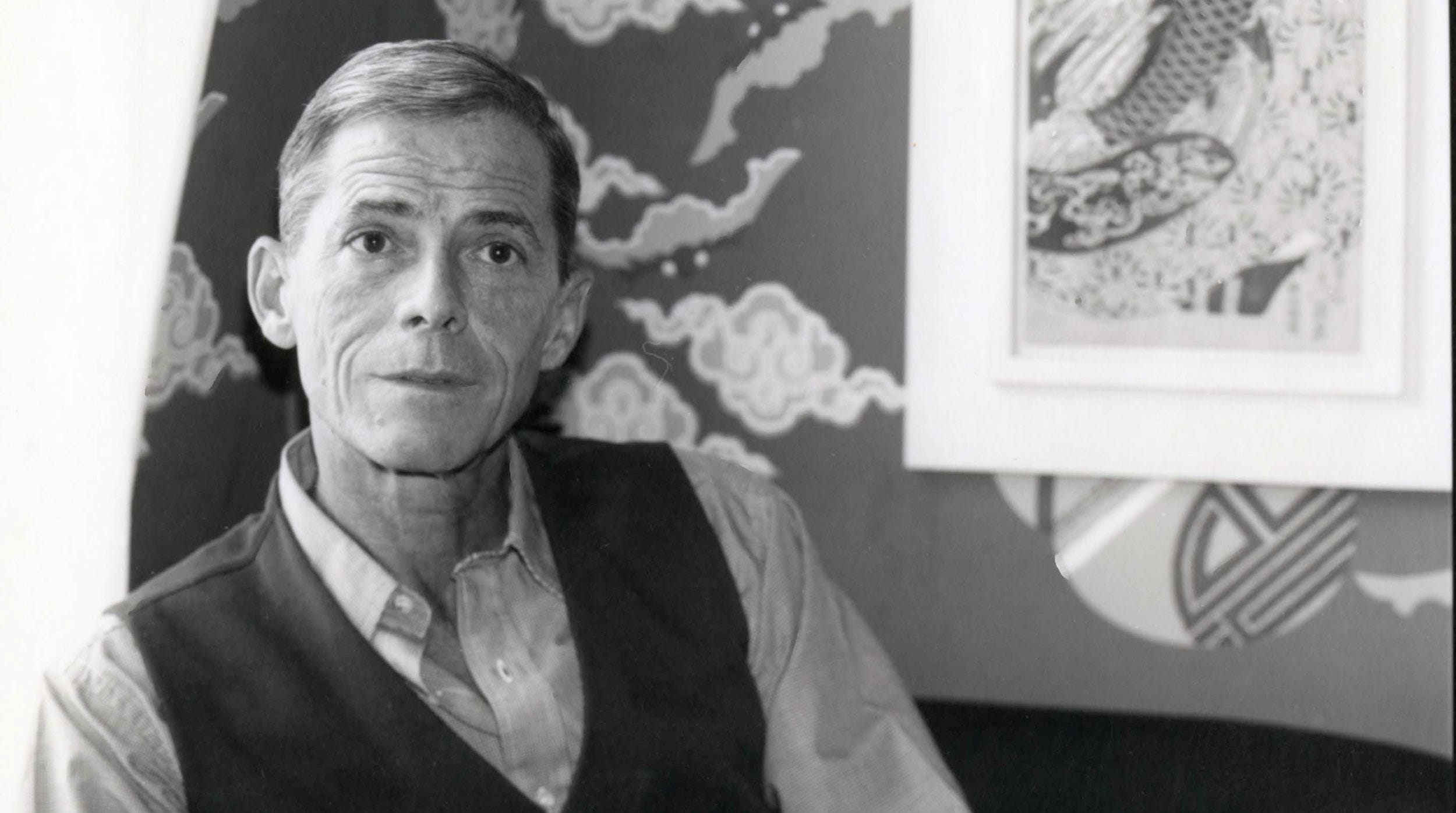

"A master of forms, Merrill’s later poetry rarely feels formal. In the poet X.J. Kennedy observed that “Merrill never sprawls, never flails about, never strikes postures. Intuitively he knows that, as Yeats once pointed out, in poetry, ‘all that is personal soon rots; it must be packed in ice or salt.’” - Get full access to The Daily Poem Podcast at dailypoempod.substack.com/subscribe https://dailypoempod.substack.com/subscribe?utm_medium=podcast&utm_campaign=CTA_4
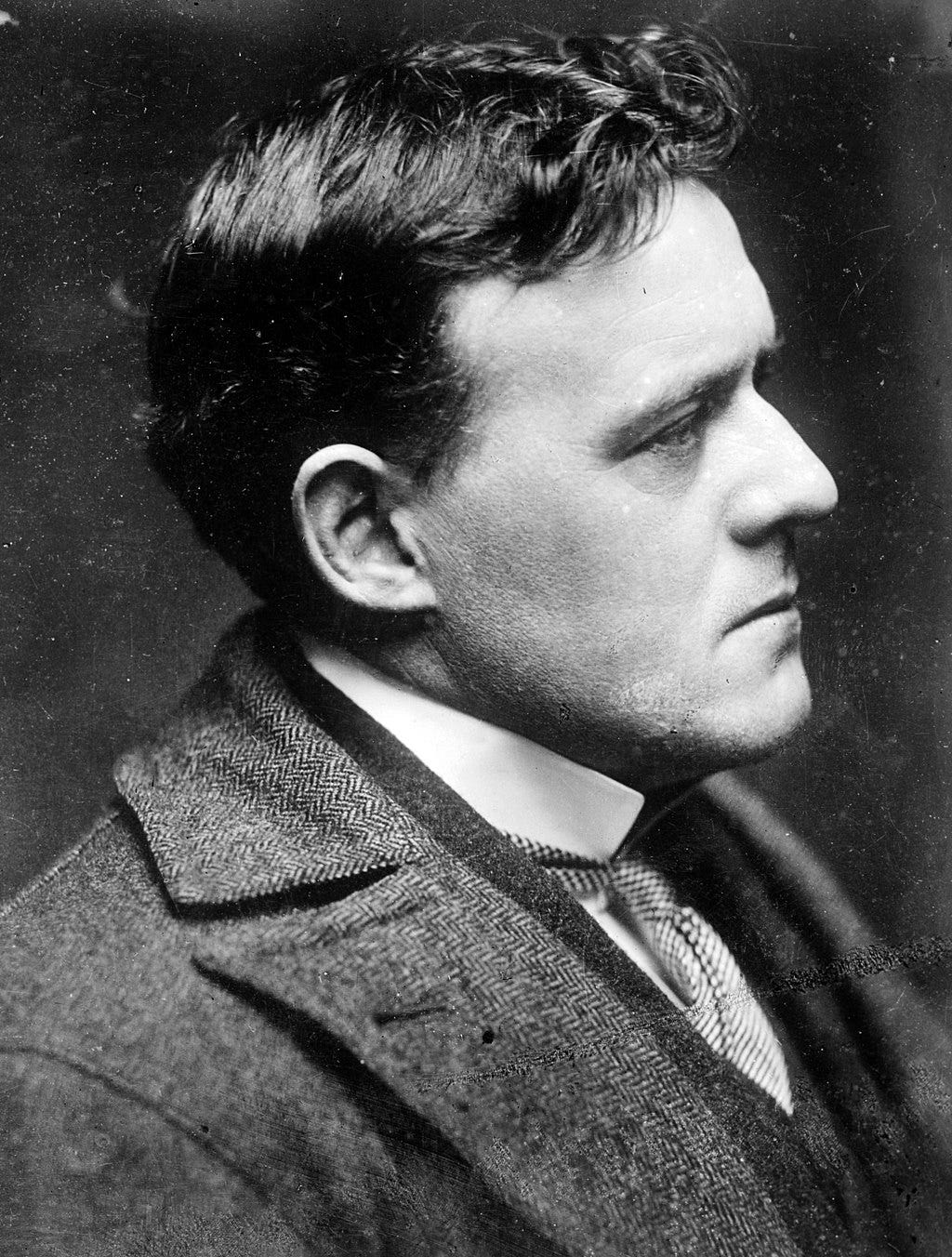

Today’s poem is a master-class in snappy putdowns and the value of a fiercely-loyal and equally witty friend. Joseph Hilaire Pierre René Belloc (1870 – 1953) was a Franco-English writer and historian of the early 20th century. Belloc was also an orator, poet, sailor, satirist, writer of letters, soldier, and political activist. His Catholic faith had a strong effect on his works. Belloc became a naturalised British subject in 1902 while retaining his French citizenship. While attending Oxford University, he served as President of the Oxford Union. From 1906 to 1910, he served as one of the few openly Catholic members of the British Parliament. Belloc was a noted disputant, with a number of long-running feuds. He was also a close friend and collaborator of G. K. Chesterton. George Bernard Shaw, a friend and frequent debate opponent of both Belloc and Chesterton, dubbed the pair the "Chesterbelloc". Belloc's writings encompassed religious poetry and comic verse for children. His widely sold included "Jim, who ran away from his nurse, and was eaten by a lion" and "Matilda, who told lies and was burned to death". He wrote historical biographies and numerous travel works, including (1902). Get full access to The Daily Poem Podcast at dailypoempod.substack.com/subscribe https://dailypoempod.substack.com/subscribe?utm_medium=podcast&utm_campaign=CTA_4
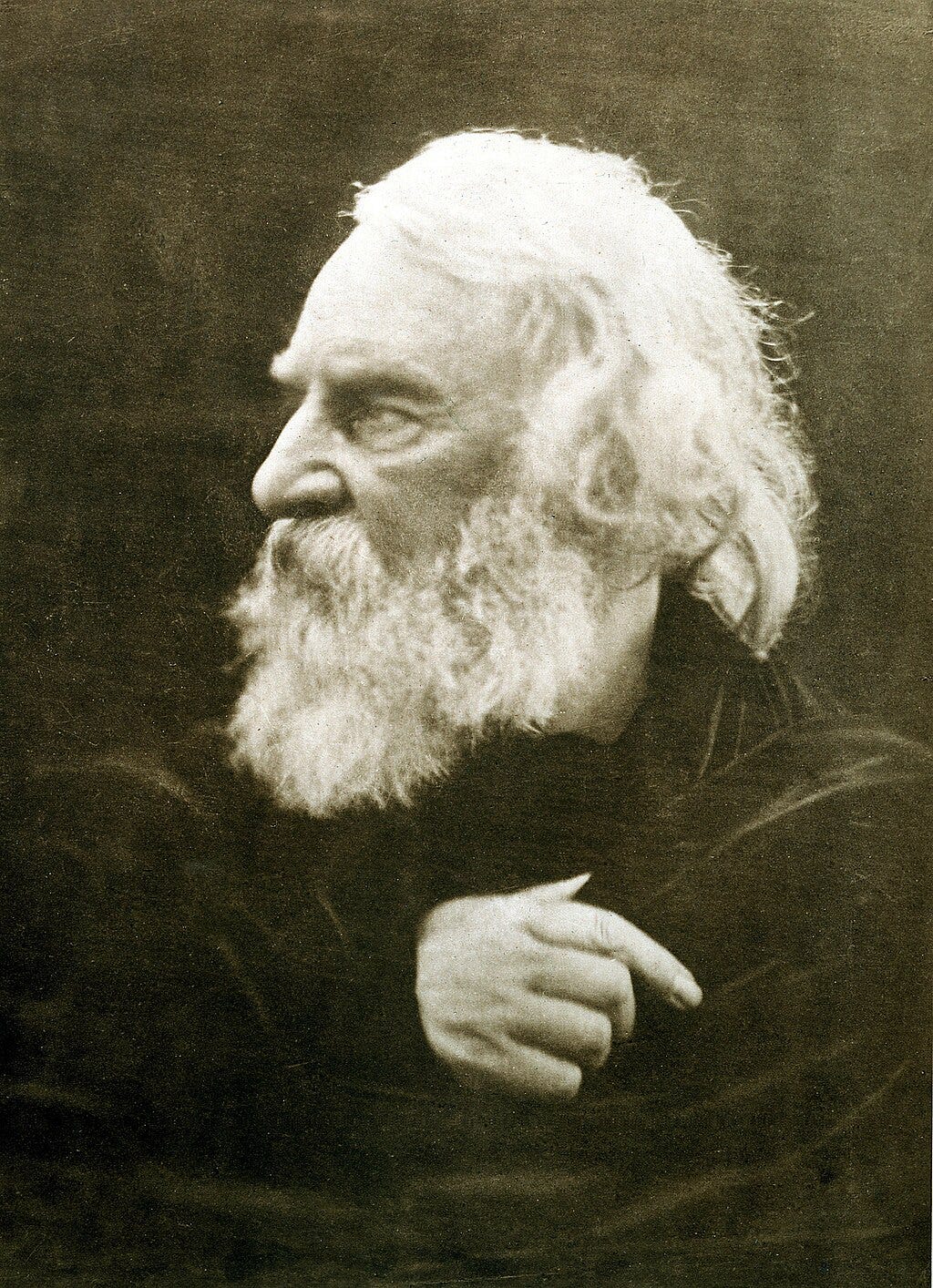

Today’s poem is a grand smorgasbord of poetical allusions from the unofficial patron of The Daily Poem. Happy reading! Get full access to The Daily Poem Podcast at dailypoempod.substack.com/subscribe https://dailypoempod.substack.com/subscribe?utm_medium=podcast&utm_campaign=CTA_4


Naomi Shihab Nye was born on March 12, 1952, in St. Louis to a Palestinian father and an American mother. During her high school years, she lived in Ramallah in Palestine, the Old City in Jerusalem, and San Antonio, Texas, where she later received her BA in English and world religions from Trinity University. Nye is the author of numerous books of poems, most recently Her other books of poetry include (Greenwillow Books, 2020); (BOA Editions, 2019); (Greenwillow Books, 2018); (BOA Editions, 2011); (BOA Editions, 2005), which received the Isabella Gardner Poetry Award; (Greenwillow Books, 2002), and the forthcoming . She is also the author of several books of poetry and fiction for children, including (Simon Pulse, 1997), for which she received the Jane Addams Children's Book Award in 1998. Nye gives voice to her experience as an Arab American through poems about heritage and peace that overflow with a humanitarian spirit. About her work, the poet William Stafford has said, “her poems combine transcendent liveliness and sparkle along with warmth and human insight. She is a champion of the literature of encouragement and heart. Reading her work enhances life.” - Get full access to The Daily Poem Podcast at dailypoempod.substack.com/subscribe https://dailypoempod.substack.com/subscribe?utm_medium=podcast&utm_campaign=CTA_4
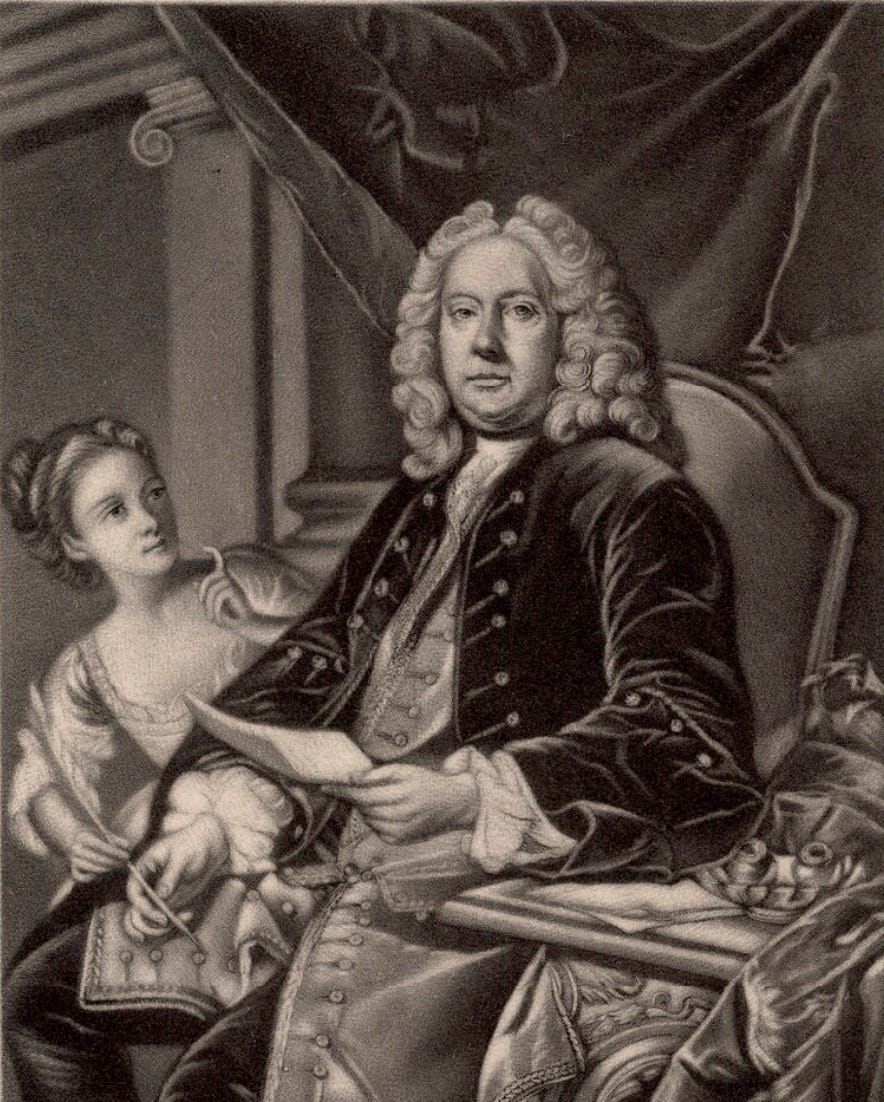

Today’s poem (from an oft-maligned poet) makes frequent appearances in poetry anthologies for children, but hides a satisfying subtlety. Colley Cibber (6 November 1671 – 11 December 1757) was an English actor-manager, playwright and Poet Laureate. His colourful memoir (1740) describes his life in a personal, anecdotal and even rambling style. He wrote 25 plays for his own company at Drury Lane, half of which were adapted from various sources, which led Robert Lowe and Alexander Pope, among others, to criticise his "miserable mutilation" of "crucified Molière [and] hapless Shakespeare". He regarded himself as first and foremost an actor and had great popular success in comical fop parts, while as a tragic actor he was persistent but much ridiculed. Cibber's brash, extroverted personality did not sit well with his contemporaries, and he was frequently accused of tasteless theatrical productions, shady business methods, and a social and political opportunism that was thought to have gained him the laureateship over far better poets. He rose to ignominious fame when he became the chief target, the head Dunce, of Alexander Pope's satirical poem . Cibber's poetical work was derided in his time and has been remembered only for being poor. His importance in British theatre history rests on his being one of the first in a long line of actor-managers, on the interest of two of his comedies as documents of evolving early 18th-century taste and ideology, and on the value of his autobiography as a historical source. Get full access to The Daily Poem Podcast at dailypoempod.substack.com/subscribe https://dailypoempod.substack.com/subscribe?utm_medium=podcast&utm_campaign=CTA_4


Bertolt Brecht (February 10, 1898 – August 14, 1956) was an influential playwright and poet. His poetry https://bookshop.org/a/98428/9780156806466 is collected in (1997) and (2003). He wrote a wide variety of poetry, including occasional poems, poems he set to music and performed, songs and poems for his plays, personal poems recording anecdotes and thoughts, and political poems. Poet Michael Hofmann commented, “In the course of a mobile, active and engaged life, the poems were the intelligent, compressed, adaptable and self-contained form for both his private and his public address.” - Get full access to The Daily Poem Podcast at dailypoempod.substack.com/subscribe https://dailypoempod.substack.com/subscribe?utm_medium=podcast&utm_campaign=CTA_4


Today’s poem is a walking song composed by Bilbo Baggins, reworked and repurposed at several key moments in The Hobbit https://bookshop.org/a/98428/9780618968633 and The Lord of the Rings https://bookshop.org/a/98428/9780358439196. Happy reading! Get full access to The Daily Poem Podcast at dailypoempod.substack.com/subscribe https://dailypoempod.substack.com/subscribe?utm_medium=podcast&utm_campaign=CTA_4


Today’s poem is a piece of uncollected verse from one of the world’s most beloved children’s writers: Dr. Seuss. Theodor Seuss Geisel (March 2, 1904 – September 24, 1991) was an American children's author and cartoonist. He is known for his work writing and illustrating more than 60 books under the pen name Dr. Seuss. His work includes many of the most popular children's books of all time, selling over 600 million copies and being translated into more than 20 languages by the time of his death. Get full access to The Daily Poem Podcast at dailypoempod.substack.com/subscribe https://dailypoempod.substack.com/subscribe?utm_medium=podcast&utm_campaign=CTA_4


Today’s poem comes from one of America’s most beloved and decorated poets, Richard Wilbur. Don’t be put off by the title; no matter the subject, Wilbur’s poetry is always so marvelously companionable–desert island reading https://bookshop.org/a/98428/9780156030793 if ever there was. Get full access to The Daily Poem Podcast at dailypoempod.substack.com/subscribe https://dailypoempod.substack.com/subscribe?utm_medium=podcast&utm_campaign=CTA_4
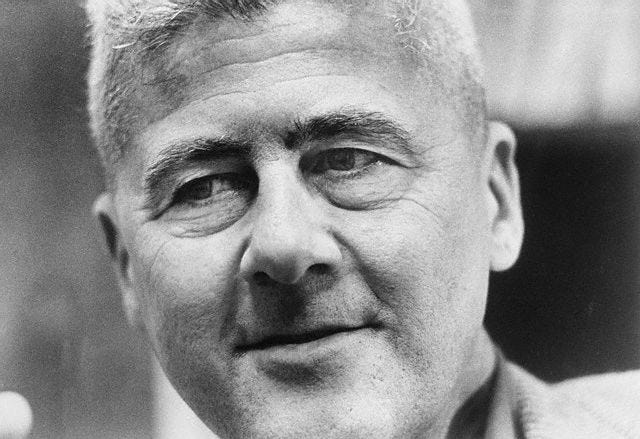

For the day that only comes ‘round once every four years, we have a haunting poem about missed connections–and from a poet with a “Leap Day” birthday, no less. Howard Nemerov was born on February 29, 1920, in New York, New York. Throughout World War II, he served as a pilot in the Royal Canadian unit of the U. S. Army Air Force. He married in 1944, and after the war, having earned the rank of first lieutenant, returned to New York with his wife to complete his first book. Nemerov was first hired to teach literature to World War II veterans at Hamilton College in New York. His teaching career flourished, and he went on to teach at Bennington College, Brandeis University, and Washington University in St. Louis, where he was Distinguished Poet in Residence from 1969 until his death. In addition to a dozen collections of poetry https://bookshop.org/a/98428/9780226572598, he was also an accomplished prose writer with several collections of non-fiction essays to his name. - Get full access to The Daily Poem Podcast at dailypoempod.substack.com/subscribe https://dailypoempod.substack.com/subscribe?utm_medium=podcast&utm_campaign=CTA_4
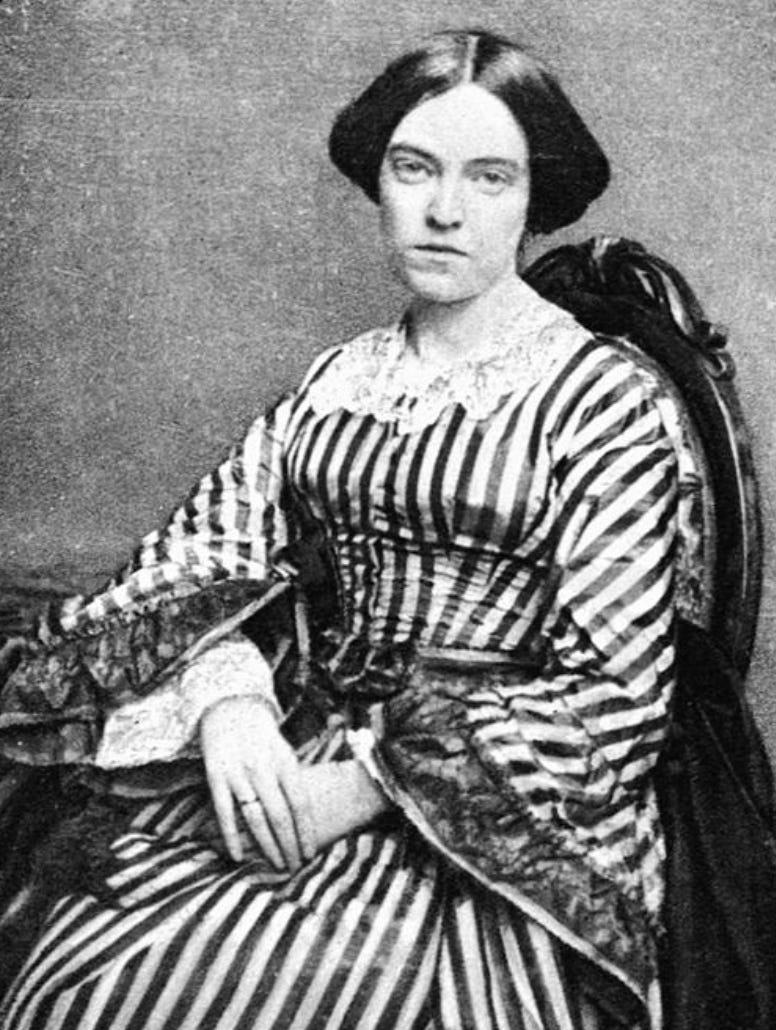

Elizabeth Drew Barstow Stoddard (1823-1902) was a poet, fiction writer, and essayist born and raised in Mattapoisset, Massachusetts. The daughter of a shipbuilder, Stoddard was educated at Wheaton Female Seminary. She married poet Richard Stoddard in 1851 and together they had three children, two of whom died as infants. The Stoddards’ New York City home was a gathering place for local poets, and Elizabeth began to submit her own poetry, fiction, and social commentary to journals. From 1854 to 1858, Stoddard contributed a bimonthly column to the San Francisco newspaper .Stoddard wrote three novels, including (1862), and many short stories, essays, children’s tales, and poems. Uncommon for her time, her work questions the conventions of gender roles and is rooted in an unsentimental, irreverent realism. Her poetry, gathered in (1895), often examines a fragile domestic realm. - Get full access to The Daily Poem Podcast at dailypoempod.substack.com/subscribe https://dailypoempod.substack.com/subscribe?utm_medium=podcast&utm_campaign=CTA_4
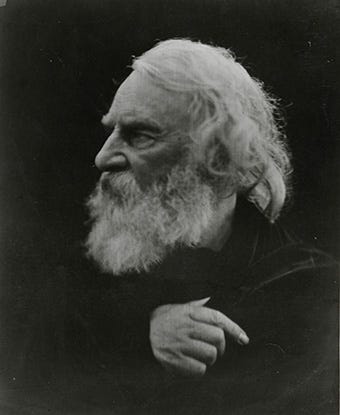

Happy Birthday to America’s great man of letters, Henry Wadsworth Longfellow! Get to know Longfellow better through his own verse https://amzn.to/48wRYF1, or in the pages of Nicholas Basbanes’ excellent biography, . Get full access to The Daily Poem Podcast at dailypoempod.substack.com/subscribe https://dailypoempod.substack.com/subscribe?utm_medium=podcast&utm_campaign=CTA_4
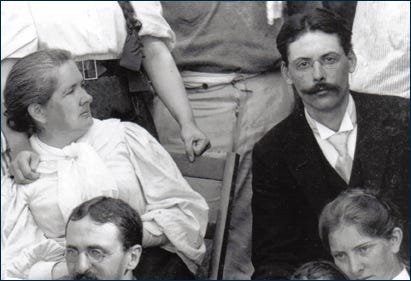

Edwin Arlington Robinson was born in Head Tide, Maine on December 22, 1869 (the same year as W. B. Yeats). His family moved to Gardiner, Maine, in 1870, which renamed “Tilbury Town,” became the backdrop for many of Robinson’s poems. Robinson described his childhood as stark and unhappy; he once wrote in a letter to Amy Lowell that he remembered wondering why he had been born at the age of six. After high school, Robinson spent two years studying at Harvard University as a special student and his first poems were published in the . Robinson privately printed and released his first volume of poetry, in 1896 at his own expense; this collection was extensively revised and published in 1897 as . Unable to make a living by writing, he got a job as an inspector for the New York City subway system. In 1902, he published . This work received little attention until President Theodore Roosevelt wrote a magazine article praising it and Robinson. Roosevelt also offered Robinson a sinecure in a U.S. Customs House, a job he held from 1905 to 1910. Robinson dedicated his next work, (1910), to Roosevelt. Robinson’s first major success was (1916). He also composed a trilogy based on Arthurian legends: (1917), (1920), and (1927), which won a Pulitzer Prize in 1928. Robinson was also awarded a Pulitzer Prize for his (1921) in 1922 and (1924) in 1925. For the last twenty-five years of his life, Robinson spent his summers at the MacDowell Colony of artists and musicians in Peterborough, New Hampshire. Robinson never married and led a notoriously solitary lifestyle. He died in New York City on April 6, 1935. - Get full access to The Daily Poem Podcast at dailypoempod.substack.com/subscribe https://dailypoempod.substack.com/subscribe?utm_medium=podcast&utm_campaign=CTA_4


Today’s classic poem from W. B. Yeats doubles as one of the greatest literary justifications for committing poems to memory. Happy reading! Get full access to The Daily Poem Podcast at dailypoempod.substack.com/subscribe https://dailypoempod.substack.com/subscribe?utm_medium=podcast&utm_campaign=CTA_4
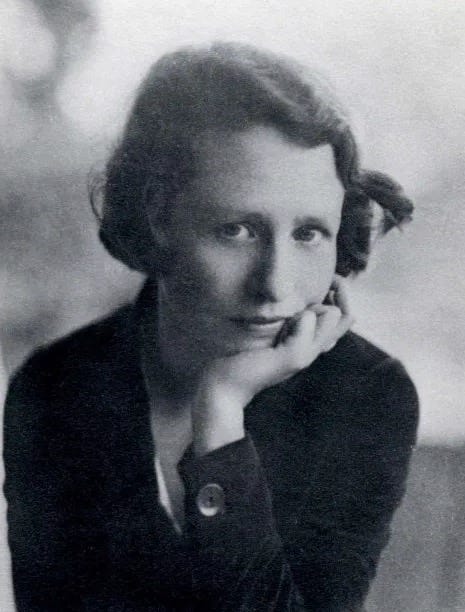

Today’s poems pay tribute to the soulful and spirited Edna St. Vincent Millay, first woman to win the Pulitzer Prize for Poetry. They are “First Fig,” “Second Fig,” and “Thursday,” all from her collection, Poet and playwright Edna St. Vincent Millay was born in Rockland, Maine, on February 22, 1892. In 1912, Millay entered her poem “Renascence” to s poetry contest, where she won fourth place and publication in the anthology. This brought her immediate acclaim and a scholarship to Vassar College, where she continued to write poetry and became involved in the theater. In 1917, the year of her graduation, Millay published her first book, (Harper, 1917). At the request of Vassar’s drama department, she also wrote her first verse play, (1921), a work about love between women. After graduating from Vassar, Millay moved to New York City’s Greenwich Village, where she lived with her sister, Norma, in a nine-foot-wide attic. Millay published poems in , the , and others while writing short stories and satire under the pen name Nancy Boyd. She and Norma acted with the Provincetown Players in the group’s early days, befriending writers such as poet Witter Bynner, critic Edmund Wilson, playwright and actress Susan Glaspell, and journalist Floyd Dell. Millay published (Harper & Brothers, 1920), a volume of poetry which drew much attention for its controversial descriptions of female sexuality and feminism. In 1923, Millay was awarded the Pulitzer Prize for (Flying Cloud Press, 1922). In addition to publishing three plays in verse, Millay also wrote the libretto of one of the few American grand operas, (Harper & Brothers, 1927). Millay married Eugen Boissevain in 1923, and the two were together for twenty-six years. Boissevain gave up his own pursuits to manage Millay’s literary career, setting up the readings and public appearances for which Millay grew famous. Edna St. Vincent Millay died at the age of fifty-eight on October 18, 1950, in Austerlitz, New York. - Get full access to The Daily Poem Podcast at dailypoempod.substack.com/subscribe https://dailypoempod.substack.com/subscribe?utm_medium=podcast&utm_campaign=CTA_4


In today’s poem one great poet pays passionate tribute to another. Get full access to The Daily Poem Podcast at dailypoempod.substack.com/subscribe https://dailypoempod.substack.com/subscribe?utm_medium=podcast&utm_campaign=CTA_4


The full title of today’s poem from Maurice Manning says it all: “A Brief Refutation of the Rumor That I Allowed Willie and Tad to Relieve Themselves in my Up-Turned Hat on a Sunday Morning at the Office While Their Mother was Attending Religious Services” MAURICE MANNING (born 1966) is an American poet. His first collection of poems, , was awarded the Yale Younger Poets Award, chosen by W.S. Merwin. Since then he has published four collections of poetry (with Houghton Mifflin Harcourt and Copper Canyon Press). He teaches English and Creative Writing at Transylvania University in Lexington, Kentucky, where he oversees the Judy Gaines Young Book Award, and is a member of the poetry faculty of the Warren Wilson College MFA Program for Writers. Today’s poem comes from his 2020 collection, . - Get full access to The Daily Poem Podcast at dailypoempod.substack.com/subscribe https://dailypoempod.substack.com/subscribe?utm_medium=podcast&utm_campaign=CTA_4
